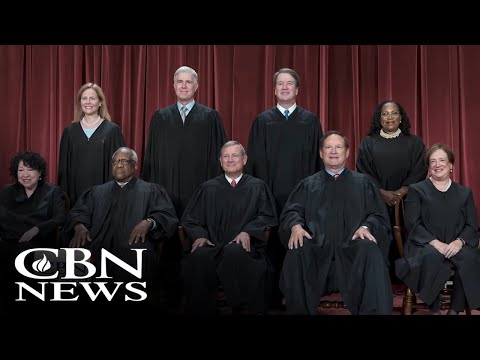In a significant legal battle unfolding in the United States, the case of Medina v. Planned Parenthood South Atlantic brings to light serious questions regarding states’ rights and the influence of abortion providers in the healthcare system. This case has drawn attention from both sides of the ideological divide, highlighting the deep-rooted passions tied to the sanctity of life and the rights of states to control their own Medicaid funds. As the Supreme Court hears arguments, many in the evangelical community are closely monitoring the developments, reflecting their values of faith, morality, and a commitment to protecting the unborn.
The core issue in this case centers on whether states should have the authority to determine which medical providers are eligible for Medicaid reimbursement. Advocates for states’ rights argue that South Carolina should be able to refuse funding to Planned Parenthood, an organization involved in providing abortion services across the nation. This argument aligns with the belief in the right of states to govern themselves without excessive federal oversight, a tenet that resonates strongly with many evangelical Christians who seek to uphold the principles of personal responsibility and community governance.
Planned Parenthood’s legal stance, however, revolves around the claim that patients should have the freedom to choose where they receive their Medicaid-covered services, including important health services like cancer screenings and STD testing. Critics contend that this argument is disingenuous, although it is noteworthy that a significant portion of Planned Parenthood’s activities are focused on providing a range of reproductive health services beyond abortion. Many who hold faith-based convictions find it troubling that taxpayer dollars could potentially be associated with organizations providing abortions, which they view as the morally indefensible act.
The concept of choice is pivotal in this case. The justices will consider whether the term “right” applies to the choice of healthcare providers, encouraging a broader conversation about what constitutes a qualified provider in family planning services. Evangelicals may see this as an opportunity to reinforce the idea that the right to choose must always be balanced with the moral imperative to protect life. They argue that states should be empowered to prioritize the health and well-being of their communities by supporting providers that uphold pro-life values.
As the Court deliberates, the implications of their decision extend well beyond South Carolina. A ruling in favor of Medina and the state could set a precedent that allows other states to restrict funding to Planned Parenthood and similar organizations, potentially reshaping the landscape of reproductive health in America. For many evangelicals, this is not just a legal issue but also a moral one, as the outcome might influence the framework of healthcare decisions that involve family planning across the nation. The rhythm of worship and the voices of protesters outside the court serve as a reminder of the passionate commitment of many in the faith community to protect life from the very beginning.
The Supreme Court’s anticipated decision in June could resonate deeply within the hearts of those who value faith and family. It stands as a pivotal moment for the pro-life movement, where the intersection of law, morality, and healthcare will be closely examined. As the justices deliberate on what the future of Medicaid funding may hold, it is essential for everyone to reflect on the profound responsibilities tied to the choices we make regarding life, health, and the well-being of our communities.



